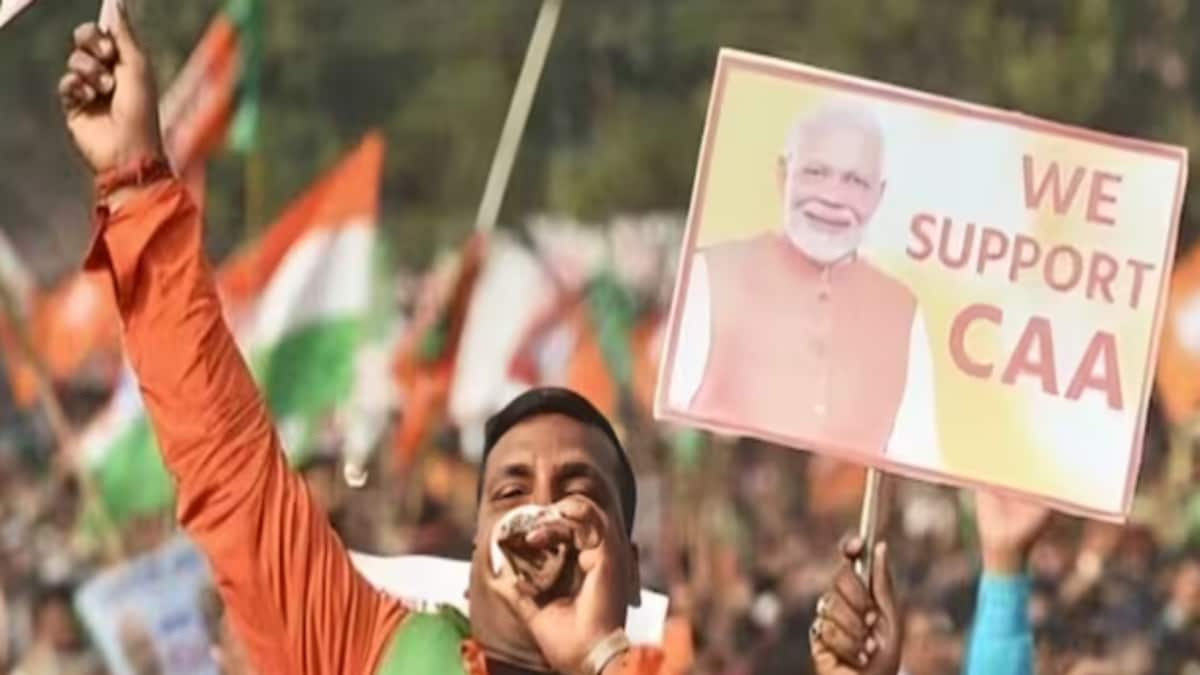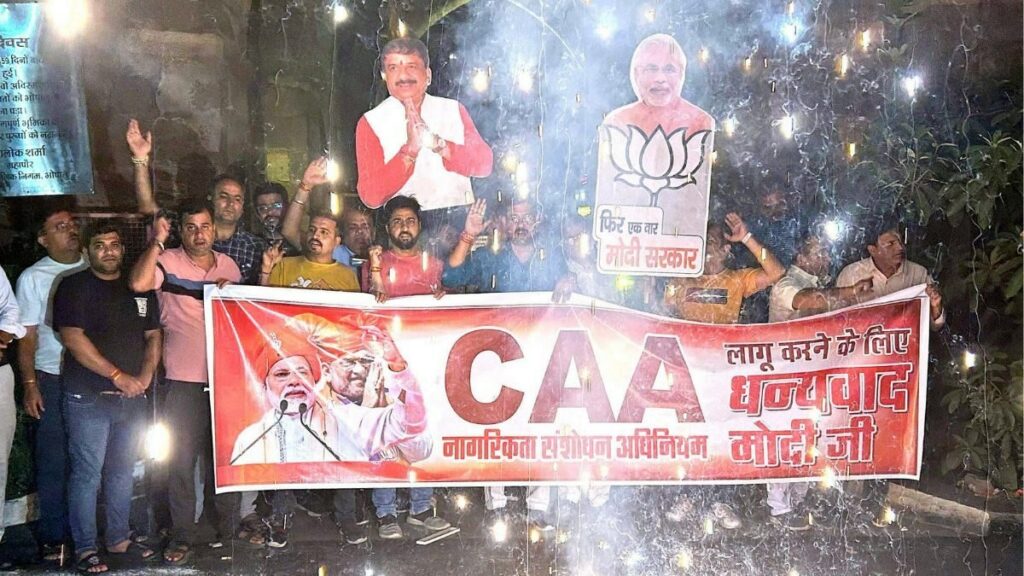Reported By: Ankur Sharma
Last Updated: March 12, 2024, 21:25 IST

According to the MHA, due to the persecution of minorities in those three Muslim countries, the name of Islam was tarnished around the world. (File for representation)
“There is no bar on Muslims from anywhere in the world to seek Indian Citizenship under Section 6 of the Citizenship Act, which deals with the citizenship by naturalisation,” the MHA said, adding the Act protects Islam from being tarnished in the name of persecution
Defusing misinformation among Muslim community regarding the Citizenship Amendment Act, the Ministry of Home Affairs (MHA) clarified that the law does not take away any Indian’s citizenship, irrespective of their religion. Also, India does not have any pact to repatriate Muslim migrants back to their countries.
ALSO READ | CAA: Citizenship, Visas, Refugees & Muslims, Modi Govt’s New Law of the Land Explained
While replying to the concerns related to implications of the Act for Muslims, who have been living in India, the Union Home ministry said: “Indian Muslims need not worry as CAA has not made any provision to impact their citizenship and has nothing to do with the present 18 crore Indian Muslims, who have equal rights like their Hindu counterparts. No Indian citizen would be asked to produce any document to prove his citizenship after this Act.”
“Without curtailing the freedom and opportunity of Indian Muslims to enjoy their rights, as they have been usually practising and entertaining since Independence, like other Indian citizens belonging to other religions, CAA (Citizenship Amendment Act) 2019 has reduced the qualification period of application for citizenship from 11 to 5 years for the beneficiaries who had been persecuted on religious grounds in Afghanistan, Bangladesh or Pakistan and who had entered India on or before December 31, 2014, with an aim to show a generous treatment to them as compensation for appeasing their persecution,” MHA said.
Any pact to repatriate Muslims outside India?
While clearing the air on whether there is any provision or agreement for repatriating illegal Muslim migrants to Bangladesh, Afghanistan and Pakistan, the Ministry of Home Affairs said, “India does not have any pact or agreement with any of these countries to repatriate migrants back to these countries. This Citizenship Act doesn’t deal with the deportation of illegal immigrants and therefore the concern of a section of people, including Muslims and students, that the CAA is against Muslim minorities is unjustifiable.”
The ministry also said that like the Citizenship Act, 1955, this CAA defines illegal migrant as a foreigner who has entered India without valid documents.
Impact on the image of Islam
According to the MHA, due to the persecution of minorities in those three Muslim countries, the name of Islam was tarnished around the world. However, Islam, being a peaceful religion, never preaches or suggests hatred/violence/any persecution on religious grounds. This Act, showing compassion and compensation for persecution, protects Islam from being tarnished in the name of persecution.
The Ministry has also said that there is no bar for Muslims from seeking Indian citizenship. “There is no bar on Muslims from anywhere in the world to seek Indian Citizenship under Section 6 of the Citizenship Act, which deals with the citizenship by naturalisation,” MHA said.
While giving the reasons for introducing the amendments, the MHA said, “To show mercy on persecuted minorities of those three countries, this Act gives opportunity to them as per the evergreen generous culture of India to get Indian Citizenship for their happy and prosperous future. To customise the Citizenship system and control the illegal migrants, there was need for this Act.”
ALSO READ | CAA: Who Will Benefit — Pak Hindu Refugees in Delhi, Matuas, Rajbanshis in Bengal? What Changes Now?
In 2016, the Central government also made minorities of those three countries eligible for long-term visa to stay in India.
The CAA does not cancel the naturalisation laws. Therefore, any person, including Muslim migrants from any foreign country, seeking to be an Indian citizen, can apply for the same under the existing laws. This Act does not prevent any Muslim, who is persecuted in those three Islamic countries, from practising their version of Islam or from applying for Indian citizenship under the existing laws.











